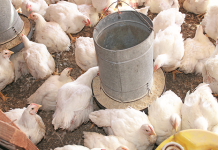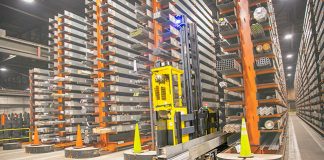I was greatly relieved to hear at the recent African Farmers’ Association of South Africa (Afasa) annual general meeting that government is beginning to realise the importance of communal land tenure. My enthusiasm was immediately tempered, though, by the fact that there is still no plan on how to address this issue.
At the Afasa AGM, which was attended by President Jacob Zuma, an unmistakable theme emerged: farmers are deeply unhappy about having to lease land. They want to own the land on which they toil. This has been raised at numerous gatherings since government decided it was giving farmers leases instead of title deeds.
If Minister Gugile Nkwinti is to be believed, the Department of Rural Development and Land Reform is keen to reverse the legacy of the 1913 Native Land Act. Insecure land tenure in communal areas is a key legacy of this act. However, trying to address this problem seems to be beyond government’s capability.
According to Nkwinti, 57% of the population lives on 13% of the land. Statistics from the annual report of the National Emergent Red Meat Producers’ Organisation suggests that this is where about 70% of smallholder farmers are found.
And Zuma, speaking at the Afasa AGM, said that 25 million people – half of the country’s population – lived in the rural areas, and these people produced only 10% of the agricultural output through subsistence farming.
“More support for emerging farmers will enable us to improve the participation of black people, in particular Africans, in commercial agriculture,” he said. I believe this goal will be unachievable without addressing the land issue for these communal land farmers.
In his closing remarks at the AGM, Nkwinti said that land was a fundamental source of wealth and economic growth. Well, having access to land is good, but owning it is a great deal better. When people own land, they are far more likely to be creative about making money from it. If there is no ownership, and a string of terms and conditions, the opposite applies. Without full individual property rights, communal land occupiers cannot use their land as collateral, rent it, or sell any portion of it to enjoy its full benefits.
Why the delay?
“A radical redistribution of land and landed assets is the surest way of growing the economy and fighting poverty, unemployment and income inequality,” said Nkwinti. “But, in a constitutional democracy you must do that through institutions and laws which are not in conflict with the Constitution.”
Fair enough, but it has been two years since the Constitutional Court declared the Communal Land Rights Act 11 of 2004 unconstitutional. And Nkwinti has admitted that this act is no longer consistent with government policy. Yet it is still unclear how government intends to approach communal tenure reform.
Government needs to tackle the problem head-on and stop calling it a ‘sensitive issue’. Tip-toeing around the subject will not secure the land rights of 57% of South Africa’s population and ensure a thriving rural economy that provides for job creation.












